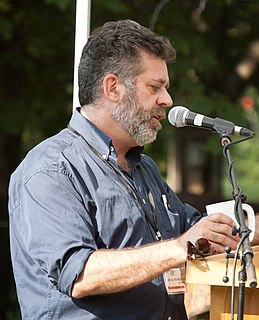A Quote by Truman Capote
If you happen to capture my imagination for some reason and I decide to write about you and you don't like what I wrote about you, which is entirely possible, then yes, I'm a dangerous writer.
Related Quotes
Everyone always asks, was he mad at you for writing the book? and I have to say, Yes, yes, he was. He still is. It is one of the most fascinating things to me about the whole episode: he cheated on me, and then got to behave as if he was the one who had been wronged because I wrote about it! I mean, it's not as if I wasn't a writer. It's not as if I hadn't often written about myself. I'd even written about him. What did he think was going to happen? That I would take a vow of silence for the first time in my life? "
Yes?’ he asked, looking at me over the sheet. ‘I’m a writer temporarily down on my inspirations.’ ‘Oh, a writer, eh?’ ‘Yes.’ ‘Are you sure?’ ‘No, I’m not.’ ‘What do you write?’ ‘Short stories mostly. And I’m halfway through a novel.’ ‘A novel, eh?’ ‘Yes.’ ‘What’s the name of it?’ ‘”The Leaky Faucet of My Doom.”‘ ‘Oh, I like that. What’s it about?’ ‘Everything.’ ‘Everything? You mean, for instance, it’s about cancer?’ ‘Yes.’ ‘How about my wife?’ ‘She’s in there too.
Some people say, 'Well you're a man; how do you write about women or girls when you don't know about them?' Well, I've got my imagination, and I can write about women. Yes, I'll never be pregnant and give birth to children, but I can imagine a bit of what it's like. When you create characters, it's just about making them really real to people.
A typical workday for me is getting up at about 5:00, 5:15 in the morning, getting some coffee or tea as quickly as possible, and then getting to my desk. And ideally, I'll start writing around 5:30, 5:45, and I'll write for three, four hours, and then I'll take a break, and read over what I write. Maybe about lunchtime, I'll go exercise or get out into the day. Then I'll either read over what I wrote the day before and quit work around 3:00 or 4:00 in the afternoon and spend some time with my kids.
Is it possible that there is something we don't fully understand about God and about Life, the understanding of which would change everything? Is it possible that there is something we don't understand about ourselves, and about who we are, the understanding of which would alter our lives forever for the better? Yes. The answer is yes.
I took to writing as my medicine to help me stay afloat in acting career journey. I wrote about me breaking hearts, and my heart being broken. I wrote about my views whether they were liberal or conservative. I wrote about everything. I wrote about my life. When I did not have paper coming in as green backs, I'd use random pieces of paper for stories. It was like, I got no money, but I have paper to write. So I wrote.
There's no reason why you can't say "August Wilson, playwright" even though all of my work, every single play, is about black Americans, about black American culture, about the black experience in America. I write about the black experience of men, or I write about black folks. That's who I am. In the same manner that Chekhov wrote about the Russians, I write about blacks. I couldn't do anything else. I wouldn't do anything else.
Substances like LSD, which give away a secret about the nature of the social game - the human game and what underlies it - are potentially dangerous, of course, like any good thing is. Electricity is dangerous, fire is dangerous, cars are dangerous, planes are dangerous, but not so dangerous as driving on the freeway. The only way to handle danger is to face it. If you start getting frightened of it, then you make it worse. Because you project onto it all kinds of bogeys and threats which don't exist in it at all.
The imagination doesn't crop annually like a reliable fruit tree. The writer has to gather whatever's there: sometimes too much, sometimes too little, sometimes nothing at all. And in the years of glut there is always a slatted wooden tray in some cool, dark attic, which the writer nervously visits from time to time; and yes, oh dear, while he's been hard at work downstairs, up in the attic there are puckering skins, warning spots, a sudden brown collapse and the sprouting of snowflakes. What can he do about it?
Everybody is different. Some writers can write reams of great books and then J. D. Salinger wrote just a few. Beethoven wrote nine symphonies. They were all phenomenal. Mozart wrote some 40 symphonies, and they were all phenomenal. That doesn't mean Beethoven was a lesser writer, it's just some guys are capable of more productivity, some guys take more time.
William Maxwell's my favorite North American writer, I think. And an Irish writer who used to write for 'The New Yorker' called Maeve Brennan, and Mary Lavin, another Irish writer. There were a lot of writers that I found in 'The New Yorker' in the Fifties who wrote about the same type of material I did - about emotions and places.





































